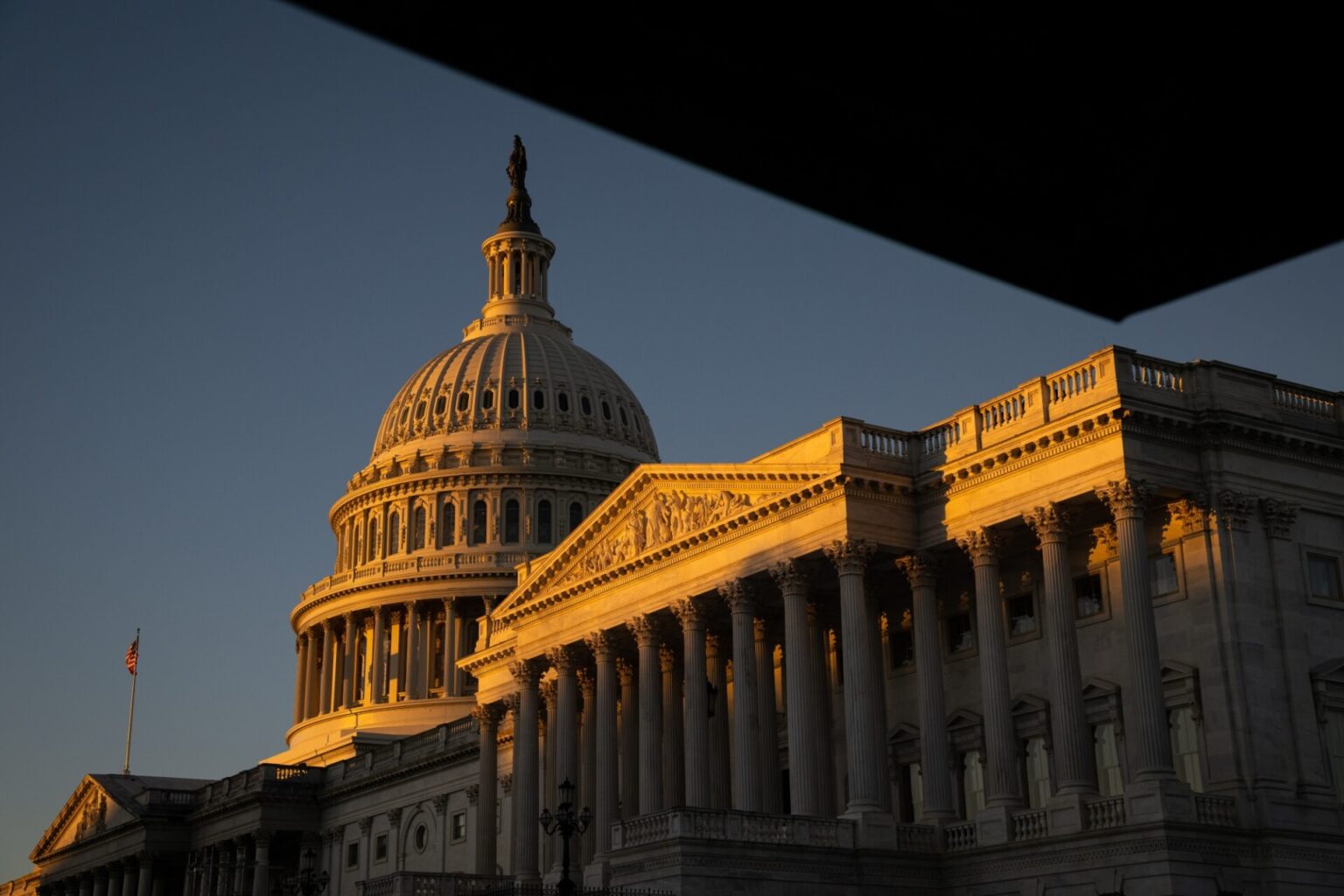As the date of June 1 comes closer, US leaders come together to discuss the crucial Debt-Celling Policy which could have an impact not only on the American Economy but also on the global economy.
With the impending date of June 1 coming closer to the US policymakers, The President of the US, Joe Biden met House of Representatives Speaker and Republican Leader Kevin McCarthy for a discussion of the US debt-ceiling Policy. The two major American Parties, the Democrats and the Republicans were working to find common ground on spending levels and energy regulations before the meeting between Biden, McCarthy and the three other top congressional leaders.

(Image Source: Reuters | Kevin Lamarque)
The White House has not ruled out the possibility of keeping annual spending caps, however, the Republicans stated that they will not consent to raising the debt ceiling unless a promise is made to cut down spending cuts. If the government fails to lift the limit of the debt ceiling, it could lead to an economic recession in the US as well as have a significant impact on the global markets. This scenario has also concerned investors and consumers in the US and globally as well.
What is Debt Ceiling Policy?
As per the US Department of Treasury, The debt limit refers to the total amount of money that the US government is permitted to borrow to keep up with its existing legal obligations, including Social Security, Medicare benefits, military salaries and pensions, interest on the national debt, tax refunds etc. The Debt Ceiling allows the government to finance existing legal obligations that Congresses and presidents of both parties have made in the past but doesn’t allow any new spending commitments.
If the government fails to increase the debt limit, it would have catastrophic economic consequences such as defaulting on legal obligations, economic crises and threatening the jobs of millions of Americans as well as have an impact on the global market due to the presence of the US Dollar as an “International Currency”.
Leader Statements
Speaker McCarthy states that there was barely any signs of progress before the meeting, which comes the day before The President’s departure to Japan for the G7 Summit.
He expressed his thoughts to the pressing by quoting that he doesn’t see any progress at all and how extremely concerned he is about the timeline the government have, especially to pass through any changes in the two houses of the Senate. He also called out the President for not focusing on the solutions of America in the context of the leader’s departure for Japan.

President Biden made statements on the negotiations which will be taking place. Moreover, he expressed his optimism at a press conference two days ago.
Earlier, he insisted that Congress increase the debt ceiling limit without any conditions, however, the head of state is open to discussing the budget matters with Congress Representatives. This point was reiterated by Lael Brainard, the head of the White House’s National Economic Council during a talk show on Sunday.
Republican Representative Don Bacon, told the American Press that an agreement could potentially lead towards a 2% annual increase over the 1% increase mentioned in the Republican bill.
Another expert, Brian Riedl stated that The White House and Republican Party may have to compromise on the permit requirements for pipelines and other energy infrastructure, to facilitate the issue at hand.
Discourse between the two parties
The Republican party members face pressure from Controversial Former President Donald Trump, who stated that the US should default on its debt until the demands of the Republicans are met. During Trump’s Presidency, the US Congress has rose the debt limit thrice.

Republicans, who hold the majority in the US Congress passed legislation in April which allowed a $1.5 trillion debt-ceiling hike along with a spending cut worth $4.8 trillion, which would be achieved by slashing annual spending by 8% next year and capping economic growth in the upcoming years.
The Democrats state that they will not agree to specific elements of the legislation. Some of them include a repeal of student-loan forgiveness efforts and a rise in work requirements for some benefit programs. However, the party has not ruled out the possibility of spending caps.
The results of this discussion will decide the future direction of the American Financial Scenario and the direction of the global economy ahead.












